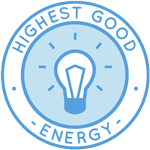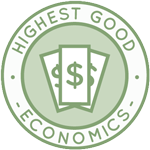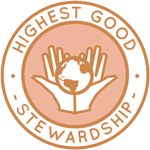Adaptable Solutions for Global Sustainability – One Community Weekly Progress Update #486
One Community is developing adaptable solutions for global sustainability. They include all the foundations needed for a sustainable civilization. The work helps in making adaptable solutions for global sustainability and reinforces our commitment to a better living quality for all people. These open source foundations include DIY-replicable approaches for food, energy, housing, education, for-profit and non-profit economic design, social architecture, fulfilled living, global stewardship practices, and more.
- Here’s our project overview
- Here’s our world-change methodology
- Here’s how this becomes self-replicating
- Here’s how we are open source and free-sharing all the do-it-yourself designs

OUR MAIN OPEN SOURCE HUBS
Click on each icon to be taken to the corresponding Highest Good hub page.
One Community’s physical location will forward this movement as the first of many self-replicating teacher/demonstration communities, villages, and cities to be built around the world. This is the July 17th, 2022 edition (#486) of our weekly progress update detailing our team’s development and accomplishments:
Adaptable Solutions for Global Sustainability
One Community Progress Update #486
DONATE | COLLABORATE | HELP WITH LARGE-SCALE FUNDING
CLICK HERE IF YOU’D LIKE TO RECEIVE AN EMAIL EACH WEEK WHEN WE RELEASE A NEW UPDATE
YOU CAN ALSO JOIN US THROUGH SOCIAL MEDIA
ONE COMMUNITY WEEKLY UPDATE DETAILS
HIGHEST GOOD HOUSING PROGRESS
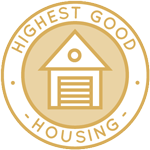 One Community is developing adaptable solutions for global sustainability through Highest Good housing that is artistic and beautiful, more affordable, more space efficient, lasts longer, DIY buildable, and constructed with healthy and sustainable materials:
One Community is developing adaptable solutions for global sustainability through Highest Good housing that is artistic and beautiful, more affordable, more space efficient, lasts longer, DIY buildable, and constructed with healthy and sustainable materials:
- Learn about: Our Upcoming Crowdfunding Campaign
- Learn about the different village models: 7 Sustainable Village Models
- Visit the open source portals for the first two: Earthbag Village OS Hub | Straw Bale Village OS Hub
his week the core team finished PhotoShop edits to the updated rendering images for the latest Murphy bed Assembly Instructions. The work helps in making adaptable solutions for global sustainability and reinforces our commitment to a better living quality for all people. You can see them below.
Dean Scholz (Architectural Designer) continued helping with the Earthbag Village (Pod 1) 4-dome cluster designs. This was week #252 of Dean’s work and he produced this new render of the bathroom/kitchen dome looking from the shower area through the kitchen and into the living room.
This week Stacey Maillet (Graphic Designer) completed her 77th week working on the final edits and revisions to the Murphy bed instructions. Her work focused on addressing comments on the new PDF MurphyBed 6.8 document. The work helps in making adaptable solutions for global sustainability and reinforces our commitment to a better living quality for all people. Screenshots below show some of her latest updates.
Daniela Andrea Parada (Civil Engineering Student) completed her 36th week helping with the Sustainable Roadways, Walkways, and Landscaping tutorial development. This week she read and responded to all new comments on the Roadways document. She reorganized the narrative on the live document to match the website and edited the roadways cost analysis, highlighting updates in blue for easy changes. She added a paragraph to the Flexible Pavement Design section on the AASHTO equation and Preliminary Analysis, ensuring accuracy through research. Additionally, she researched flexible pavement design, focusing on widening and maintenance, and planned narrative updates based on useful information. The work helps in making adaptable solutions for global sustainability. Pictures below are related to this work.
Diwei Zhang (Mechanical Engineer) completed his 17th week of work, now focused on 3D modeling and analysis review for the Net-zero Bathroom component of the Earthbag Village. This week Diwei focused on the design of the septic tank. One 2,500 gallons septic tank with two chambers is used for each net-zero bathroom. Two 2,500-gallon septic tanks are used independently, which is more cost-effective than a single 5,000-gallon tank. The smaller tanks are placed closer to the bathrooms, improving wastewater flow. The ramp and staircases are designed for vehicle and wheelchair access, but the ramp slope can’t meet the maximum hand-propelled wheelchair standard due to space limitations. Pictures below show some of this work.
Ming Weng (MS Geography & Environmental Engineering) completed his 15th week helping with the Best Small and Large-scale Community Options for Sustainable Processing and Reuse of Non-recyclables research, report, and tutorial. This week, he reviewed literature on waste-to-energy analysis in both developing (India) and developed (Europe, Germany) countries. While the studies are large-scale, he believes they can inform cost analysis for small-scale projects. He identified that some costs, like capital material costs for a pyrolysis plant, aren’t scale-dependent, while others are. He’s searching for breakthrough points. Pictures below show this work-in-progress.
Lam (Dave) T. Nguyen (Mechanical Engineer) completed his 13th week of work. This week, Dave finished writing up the “Foundational Calculations” sections for all major structures of Phase I using the methodology within the Solar Sizing Sheets. In this content, he explained how he approached double checking, comparing and validating data by sorting energy demand by area and by item category with the visual aid of pie charts. With this method, Dave can easily determine which area in general, or which item in specific, needs to be taken into consideration for adjustment. In addition, he also started reviewing the tutorial to calculate the energy balance in One Community (SAM software). Pictures below are related to this work.
Kivia Sugiarto (Sustainability Research Manager) completed her 7th week helping manage and complete the Best Small and Large-scale Community Options for Sustainable Processing and Reuse of Non-recyclables research, report, and tutorial. This week, Kivia focused on reviewing the content on the main document, looking out for duplicates in content as well as paraphrasing any content that was taken directly from the sources. She will continue working on this for the next couple of weeks. The work helps in making adaptable solutions for global sustainability and reinforces our commitment to a better living quality for all people. See below for some pictures related to this.
DUPLICABLE CITY CENTER PROGRESS
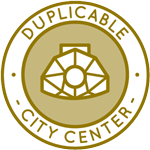 One Community is developing adaptable solutions for global sustainability through a Duplicable and Sustainable City Center that is LEED Platinum certified/Sustainable, can feed 200 people at a time, provide laundry for over 300 people, is beautiful, spacious, and saves resources, money, and space:
One Community is developing adaptable solutions for global sustainability through a Duplicable and Sustainable City Center that is LEED Platinum certified/Sustainable, can feed 200 people at a time, provide laundry for over 300 people, is beautiful, spacious, and saves resources, money, and space:
- Learn about this building and it’s function: Duplicable City Center Open Source Hub
This week Venus Abdollahi (Architectural Designer) completed her 42nd week helping finish the Duplicable City Center designs. This week Venus worked on elevations. She updated the North elevation according to the SketchUp Model, changing the position of some columns and furniture to match the new plans. Venus also corrected sections C’C’ according to her supervisor’s feedback. The work helps in making adaptable solutions for global sustainability and reinforces our commitment to a better living quality for all people. See pictures below.
Huiya Yang (Volunteer Architectural Designer) completed her 38th week working on the Duplicable City Center architectural review and updates related to the structural code. This week Huiya finished the work of updating all the doors on the first floor and the second floor in the master SketchUp model. The work helps in making adaptable solutions for global sustainability and reinforces our commitment to a better living quality for all people. Pictures of some of this work are below.
Yuxi Lu (Architectural Designer) completed her 36th week working on the Duplicable City Center architectural review and updates related to the structural code. This week Yuxi focused on adjusting the basement in preparation for rendering. Interior walls were verified and the boiler room size was changed according to the CAD plan. One column was added as it was missing from previous edits. Furniture such as shelves, carts, food elevator, and mobile tables were rearranged into the square configuration and missing outside walls were added. The work helps in making adaptable solutions for global sustainability and reinforces our commitment to a better living quality for all people. Pictures of some of this work are below.
Kamil Gajownik (Industrial/Product Designer) completed his 10th week of work on the Duplicable City Center dormer window designs and assembly instructions. This week Kamil focused on the second floor dormer; primarily adjusting the dimensions and framework based on the exact window size and also ensuring the dormer frame for the second floor can be easily made. The work helps in making adaptable solutions for global sustainability and reinforces our commitment to a better living quality for all people. Pictures below are related to this work.
HIGHEST GOOD FOOD PROGRESS
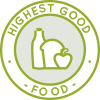 One Community is developing adaptable solutions for global sustainability through Highest Good food that is more diverse, more nutritious, locally grown and sustainable, and part of our open source botanical garden model to support and share bio-diversity:
One Community is developing adaptable solutions for global sustainability through Highest Good food that is more diverse, more nutritious, locally grown and sustainable, and part of our open source botanical garden model to support and share bio-diversity:
- Learn about the structures: Hoop House Hub | Aquapini & Walipini Open Source Hub
- See what we’ll be growing: Gardens & Hoop Houses | Large-scale Structures | Food Forest | TA
This week the core team continued detailed review and feedback on the Transition Food Self-sufficiency Plan. We completed the review for the Master Recipe and 3-day Menu Block Doc for sections FWD, FWE, and FWF through page 53. We also provided two recipe options for inclusion, resolved some comments and added numerous others, assessed nutritional values of some ingredients and suggested eliminating some with low nutrient value. Then we updated the complete Master Ingredient List and created links to the Master Cost Analysis so it will automatically calculate the cost of any 3-day menu block and every ingredient within that block so we can use it for shopping. Pictures below relate to this.
The core team also reviewed/checked the Cost Analysis spreadsheets for the Apiary, Transition Kitchen and Rabbits. We then started creating Step-by-Step instructions for setting up the Sheep and Goats barn. We wrote a section with a materials list and images for the pole barn and horizontal panel, and started working on instructions for the gate assembly. The work helps in making adaptable solutions for global sustainability.We also added links for the barn kit and to the video for using a pocket hole jig.
Marilyn Nzegwu (Chef and Culinary Consultant) completed her 13th week helping with the completion of the Transition Food Self-sufficiency Plan and related menu and meal plans. This week Marilyn continued to research and develop recipes for future menu blocks while waiting for the final review of all Fresh Week menu blocks. She corrected menus based on feedback and reviewed recipe documents for menu blocks. Marilyn added useful recipes to her draft, discarded others, and, after approval, began adding recipes to Fresh Week A and is working on Fresh Week D. The work helps in making adaptable solutions for global sustainability and reinforces our commitment to a better living quality for all people. The pictures below relate to this work.
Yinka Omole (Recipe Reviewer and Data Entry Assistant) completed her 4th week helping with the Transition Food Self-sufficiency Plan and related menu and meal plan recipe review and data entry. This week Yinka worked on updating the shopping list ingredients. Her focus was finding information for new items and trying to find the ingredients in bulk amounts. She also worked on the master recipe document and reviewed the ingredients for the different recipes for FWA to SWA. As part of this, Yinka also identified ingredients that were not on the shopping list. The work helps in making adaptable solutions for global sustainability. Below are some images related to this work.
HIGHEST GOOD EDUCATION PROGRESS
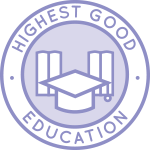 One Community is developing adaptable solutions for global sustainability through Highest Good education that is for all ages, applicable in any environment, adaptable to individual needs, far exceeds traditional education standards, and more fun for both the teachers and the students.This component of One Community is about 95% complete with only the Open Source School Licensing and Ultimate Classroom construction and assembly details remaining to be finished. With over 8 years of work invested in the process, the sections below are all complete until we move onto the property and continue the development and open sourcing process with teachers and students – a development process that is built directly into the structure of the education program and everything else we’re creating too:
One Community is developing adaptable solutions for global sustainability through Highest Good education that is for all ages, applicable in any environment, adaptable to individual needs, far exceeds traditional education standards, and more fun for both the teachers and the students.This component of One Community is about 95% complete with only the Open Source School Licensing and Ultimate Classroom construction and assembly details remaining to be finished. With over 8 years of work invested in the process, the sections below are all complete until we move onto the property and continue the development and open sourcing process with teachers and students – a development process that is built directly into the structure of the education program and everything else we’re creating too:
- Program Overview: Education Open Source Hub
- How the components work together: How to use the Education for Life Program
- Lesson Plans for Life – Lesson Plans How-to
- Foundations of Outstanding Leaders, Teachers, and Communicators
- Curriculum for Life
- Teaching Strategies for Life
- Learning Tools and Toys for Life
- Evaluation and Evolution
This week, Adolph Karubanga (Certified Project Manager & Civil/Structural Engineer) completed his 15th week helping with the Ultimate Classroom structural engineering. The work helps in making adaptable solutions for global sustainability. This week he focused on structural idealization, analysis and design of beams, columns and foundations elements. Adolph started by reviewing technical specifications and provisions in the engineering codes of practice regarding the analysis and design of the above structural elements and other reference documents collected earlier. The work helps in making adaptable solutions for global sustainability and reinforces our commitment to a better living quality for all people. Pictures below are related to this work.
HIGHEST GOOD SOCIETY PROGRESS
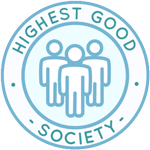 One Community is developing adaptable solutions for global sustainability through a Highest Good society approach to living that is founded on fulfilled living, the study of meeting human needs, Community, and making a difference in the world:
One Community is developing adaptable solutions for global sustainability through a Highest Good society approach to living that is founded on fulfilled living, the study of meeting human needs, Community, and making a difference in the world:
- Read the Highest Good society overview: Highest Good Society
- Learn about the model for fulfilled living and sharing: A Day in the Life
- Learn about the 4 economic models: RBE | For-profit | Non-profit | Entrepreneurship
- Learn about our open source community collaboration and management software: The Highest Good Network
This week the core team completed 21 hours managing One Community volunteer-work review not included above, emails, social media accounts, web development, new bug identification and bug fix integration for the Highest Good Network software, and interviewing and getting set up new volunteer team members. The work helps in making adaptable solutions for global sustainability and reinforces our commitment to a better living quality for all people. Pictures below show some of this.
Phu Nguyen (Software Developer) completed his 16th week helping with the Highest Good Network software. This week, Phu completed #447, ensuring the field accepts any number except negatives (which are converted to positive). He fixed errors with saving fields to the database and ensured no delay/repetition when updating numbers before hitting “Save Changes.” He reviewed Ron’s PRs 477 and 476, suggesting logic changes. Yiyun’s suggestion to limit decimals was rejected as it would break the logic. The work helps in making adaptable solutions for global sustainability and reinforces our commitment to a better living quality for all people. See pictures below.
Yiyun Tan (Software Engineer) completed her 15th week helping with the Highest Good Network software. This week Yiyun updated the backend app to make the “hoursLogged” field of the tasks work. She connected Postman and the backend app for testing changes and created a PR for all the backend changes, which is under review now. She also helped the team do a couple PR reviews. The work helps in making adaptable solutions for global sustainability and reinforces our commitment to a better living quality for all people. Pictures of some of this work are below.
Eiki Kan (Software Engineer) completed his 10th week helping with the Highest Good Network software. In terms of management work, this week he reviewed weekly summaries that helps in making adaptable solutions for global sustainability. He assisted team members with Postman and made final adjustments to the task notification feature. He implemented Yiyun and Jae’s suggested changes, fixed bugs with task filtering, the “mark as read” button, and multiple task notifications in one modal. One pull request was approved, and another is pending. He also broke down feature requests into user stories, clarified questions, and started planning the next user story: allowing managers/mentors to make task edit suggestions that require owner/admin approval. See pictures below for some of this work.
Yongtae “Yogi” Park (Graphic Designer, UX Designer) completed his 8th week helping create the social media images for these weekly progress update blogs. This week, Yongtae created 10 new images using open source images and master graphics. He didn’t need to revise previous images, since they did not have notable issues. His focus has been on improving legibility, playing with text spaces and sizes for different title sizes. Yongtae’s still figuring out a consistent system for making the texts more natural. The work helps in making adaptable solutions for global sustainability and reinforces our commitment to a better living quality for all people. Below you can see the images he created.
Vera Timokhina (Software Engineer) completed her 7th week helping with the Highest Good Network software. The work helps in making adaptable solutions for global sustainability. This week, Vera redesigned the contributed task modal, making it modern, scrollable, and screen-friendly. She also revamped the filters in the contributed tasks table, adding highlights, calendar icons, and default options. Additionally, she fixed a bug where badge edges were cut off. The work helps in making adaptable solutions for global sustainability and reinforces our commitment to a better living quality for all people. See pictures below for some of this work.
Jason Kim (Software Engineer) completed his 6th week helping with the Highest Good Network software. This week, Jason addressed the red clock hour wrapping issue caused by too many digits, contributing to adaptable solutions for global sustainability. He reviewed and approved a PR and continued working on the timelog button feature, setting it up and planning to implement the logic. This work supports sustainability and a better quality of life for all. See pictures below for some of this work.
Yan Xu (Software Development Engineer) also joined the team and completed her 1st week helping with the Highest Good Network software. This week, Yan completed the onboarding process and set up her local environment for making adaptable solutions for global sustainability. She selected a task and created a design document outlining the project name, description, requirements, and her methodology for completion. This work contributes to adaptable solutions for global sustainability and reinforces our commitment to improving quality of life for all. See pictures below for some of this work.
AND WE PRODUCED THIS WEEKLY UPDATES BLOG – CLICK HERE TO SUBSCRIBE
FOLLOW ONE COMMUNITY’S PROGRESS (click icons for our pages)
INVESTOR PAGES
GET INVOLVED
DONATE | WAYS ANYONE CAN HELP | MEMBERSHIP
CLICK HERE FOR ALL PAST UPDATES
 One Community
One Community